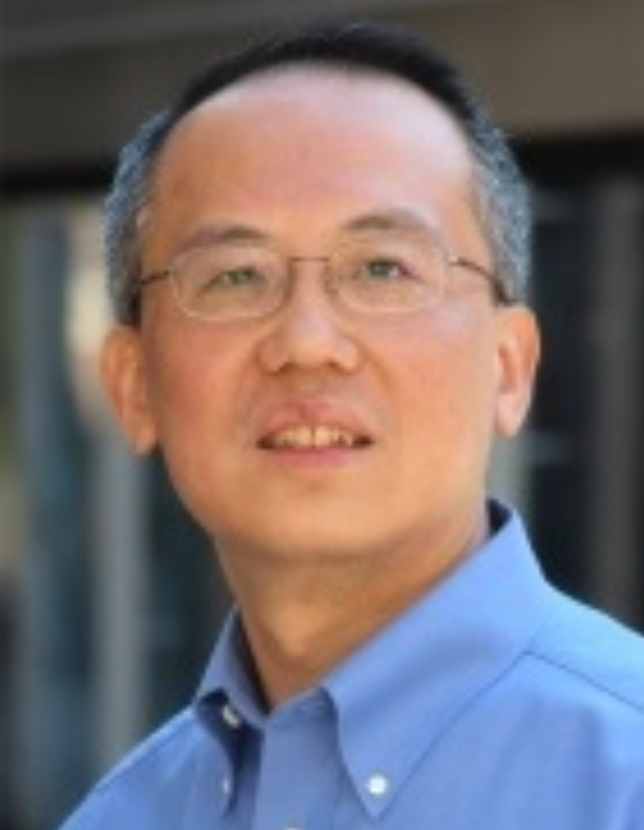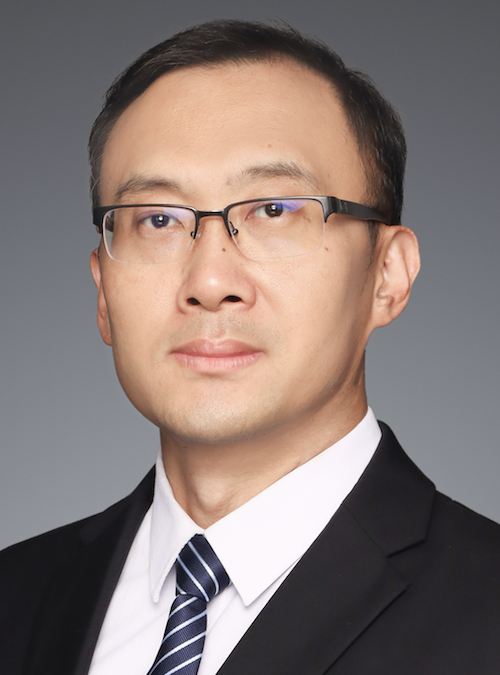
Department of Aeronautical and Automotive Engineering,
Loughborough University, UK

Dr. Wen-Hua Chen holds Professor in Autonomous Vehicles in the Department of Aeronautical and Automotive Engineering at Loughborough University, UK. He received his MSc and PhD in Industrial Automation from Northeastern University, Shenyang, China., in 1989 and 1991 respectively. Prof. Chen has a considerable experience in control, signal processing and artificial intelligence and their applications in aerospace, automotive and agriculture systems. In the last 20 years, he has been working on the development and application of unmanned aircraft system and intelligent vehicle technologies, spanning autopilots, situational awareness, decision making, verification, remote sensing for precision agriculture and environment monitoring. He is a Chartered Engineer, and a Fellow of IEEE, the Institution of Mechanical Engineers and the Institution of Engineering and Technology, UK. Recently Prof Chen was awarded an EPSRC (Engineering and Physical Science Research Council) Established Career Fellowship in developing control theory for next generation of control systems to enable high levels of automation such as robotics and autonomous systems. Prof Chen has published more than 300 papers attracting over 17,000 citations.
Integration of Disturbance Preview with Online Optimisation
This talk introduces the integration of disturbance observer techniques with online optimisation to further improve performance of control systems. With ever increasing capability of sensing and data prediction methods, it is possible to have not only past data but also near future data for improving performance (e.g. cameras and LIDAR). Disturbance observer techniques also provide a promising meaning to predict future disturbance in near future. Rather than treating future reference tracking and disturbance rejection separately, we propose an integrated optimisation framework for model predictive control with disturbance preview capability. It is assumed that disturbance information is known within the predicted horizon, but unknown (possible randomly changing within a certain bound) outside the horizon. Control systems are realised by online recursively solving an integrated optimisation problem with a defined cost function or reward function where future reference and disturbance preview information are incorporated. This approach can not only improve the disturbance rejection capability so achieve a better performance, but also, more importantly, make use unexpected opportunity created by disturbances or environment uncertainty. This reflects a feature of goal-oriented control systems since some disturbance and uncertainty may be good for achieving a specific goal so shall not be rejected. Theoretic study such as stability analysis will be presented. The proposed framework is illustrated by wave energy generation and other examples.

Zongxuan Sun is the Frank Rowley Professor of Mechanical Engineering at the University of Minnesota. He received his B.S. degree in Automatic Control from Southeast University in 1995 and Ph.D. degree in Mechanical Engineering from University of Illinois at Urbana-Champaign in 2000. He is currently Director of the Center for Compact and Efficient Fluid Power (CCEFP). His research interests include controls and mechatronics with applications to the automotive and commercial vehicle propulsion systems. Dr. Sun is a recipient of the Charles E. Bowers Faculty Teaching Award, George W. Taylor Career Development Award from College of Science and Engineering, University of Minnesota, NSF CAREER Award, SAE Ralph R. Teetor Educational Award, several Best Paper Awards, Inventor Milestone Award, Spark Plug Award, and Charles L. McCuen Special Achievement Award from GM R&D. Dr. Sun is a fellow of ASME.
Real-time Optimization and Motion Control for Off-Road Vehicles
Off-road vehicles including construction machinery and agriculture equipment are a crucial part of global energy consumption. Unlike on-road vehicles, off-road vehicles have to provide both the drive function and the work function. In addition, off-road vehicles have to interact with the environment (such as digging into the material pile) in real-time. Those unique requirements make the powertrain systems for off-road vehicles complicated, which presents significant challenges to the optimization and control of off-road vehicles. This talk will discuss the framework for real-time optimization of vehicle motion and powertrain operation. Such optimization and motion control will lay the foundation for automated off-road vehicles that can significantly reduce energy consumption and improve productivity.

Peng Yan received the B.S. and M.S. degrees in electrical engineering from Southeast University, Nanjing, China, in 1997 and 1999, respectively, and the Ph.D. degree in electrical engineering from The Ohio State University, Columbus, OH, USA, in 2003. He is currently a Professor with the School of Mechanical Engineering and Director of the Institute of Mechatronics, Shandong University, China. He has worked in various industry positions before joining Shandong University, including as a Staff Scientist at the United Technologies Research Center, East Hartford, CT, USA, from 2010 to 2012, and a Senior Staff Engineer at Seagate Technology, Twin Cities, MN, USA, from 2005 to 2010. He is a Technical Editor for the IEEE/ASME TRANSACTIONS ON MECHATRONICS, and an Associate Editor for Mechanical Sciences. His current research interests include design and control of nano- manipulating systems, as well as their applications.
Nano Precision Servo Control for Piezo Actuated Motion Systems: Design and Industrial Applications
The design and servo control of nano-scale motion systems has emerged as one of the key enabling technologies in advanced engineering applications such as IC manufacturing and high precision scientific instruments, which demonstrates a strategic impact on the commercial and defense industries. In this talk, we will discuss some recent progress on the design and servo technologies for piezo actuated motion systems to support high performance nano-positioning and nano-scanning, where some representative case studies are provided to illustrate the industrial applications of such systems.